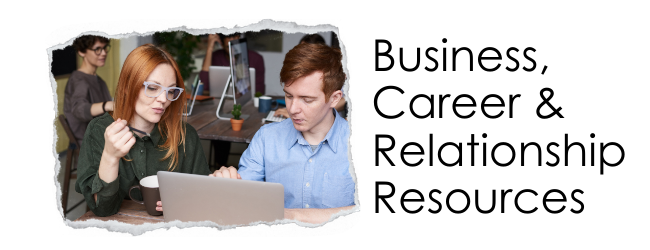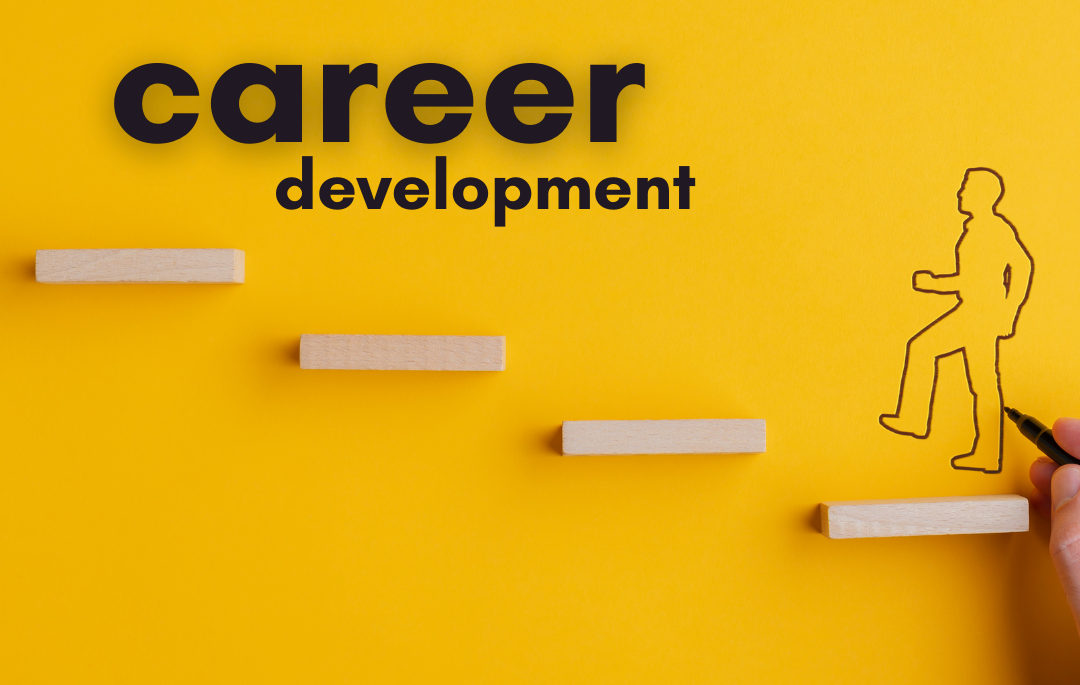
If you are dissatisfied with your career or looking for career advice, you are not alone. A study by the nonprofit, Mental Health America (MHA) surveyed 17,000 workers across 19 industries. The overwhelming results show that 71% of employees are unhappy and actively looking for a new job or career. You may be job searching also, but questioning how to manage your emotions, behavior, as well as productivity while still on the job. Gallup’s 2019 survey uncovered 85% of people disengaged on the job. Forbes says more than half are unhappy. With the 2020 pandemic and still coming out the other side of this major life disruption, everyone is wondering if the meaning, and the way, of working has changed forever.
With many women’s employment trajectory hitting the skids, so many out of work, not knowing if you’ll stay working from home (WFH) or be returning back to the office anytime soon, the future outcomes are yet to be seen with full clarity.
Let’s Break This Down
Your Career Development Deserves Career Coaching That Integrates Your Whole Life
So how can you approach your own career discontent at this or any time?
After these tumultuous past few years, and as we are deep into 4th Quarter and anticipating the coming year, you need and want to be ahead of the game. It’s actually a wonderful time to reach out for career conversations. Good career change coaching or career transition coaching should integrate the following 3 major aspects affecting your career choices at any given point in time. In career coaching with my clients:
1.) We analyze your Current Career: What opportunities you have and what more you desire.
Let’s clarify the outcome you desire and look at your whole picture. If your life and career could be better, the way you truly desire 9 – 12 months out, what would be happening? What would you be doing? What would it look like? What would it feel like?
2.) We hone in on your Past Career Experience, Current Career and Life Needs. We investigate Potential Career Opportunities.
- Career and experience history, experiences, gravitational points, ups and downs
- Your life stage, what you’ve accomplished so far, what you desire to do during this phase of your life
- What do you see yourself doing, accomplishing a few life stages in the future
- Financial security and needs
- Support system, mentors or other advisors
- Gaps, pressures, things in your way of achieving your goals
- People and responsibilities, parents, family, mate, kids, friends, others in the work world
- And anything unique to your particular situation
3.) Then we build a Strategic Action Plan Together. We walk You Step-by-Step Toward Achieving the Success You Desire.
Since life doesn’t stop while you are investigating your career options, this includes short-term or immediate steps to address current life demands and needs.
In addition, at the same time, we begin to map a path to achieve the longer-term goals along with a timetable that may shift a bit as you experiment and explore.

Career coaching can enrlarge your perspective and decision-making at each choice point in your life.
Choice Points in Career Development
Throughout the development of a typically long career, we all come to stages when we are dissatisfied or change is required. Decisions made at these times can have a profound effect on the course of one’s life.
At such a “Choice Point” you can move forward fully aligned, with confidence, or you can be reactive and become sidelined, resulting in a lifetime of consequences you may not want. You can settle for less, never knowing “what if,” or you can take control and strategically plan how you respond so you build toward a better outcome.
While companies obviously need to address the critical negative statistic from the study above, it’s important to proactively create your own focus so you minimize the stress of straddling two worlds—staying engaged on the job while actively seeking to go. Actively engaging will keep you energized and focused on the benefits necessary for your future. Otherwise, passive disengagement leads to lethargy and depression, neither of which benefit you in a job search or new career development.

There is another way for career success: Instead of acting out, burning bridges, or ignoring how unhappy you are, seek expert Career Coaching to help you stay engaged and make wise decisions about a career step or transition.
Ways to Focus, Stay Engaged and Develop Your Skills Until You Leave Your Job
As you develop a strategic plan with an expert career coach, you will need to balance current work and life responsibilities with experimenting and exploring your next options. It is super important to stay engaged in your current job–for your self-esteem and for your future reputation. Basically, don’t burn any bridges! Here are seven ways to focus, stay engaged, and develop your self—skills for the next job or next career, and tools useful for the rest of your life.
- Think and Behave Proactively. People tend to think and behave either proactively or reactively. Dissatisfaction brings you to a choice point. You can own the transition or you can balk and passively hope the situation changes. The benefit of being proactive is that you create a strategic job search or career development plan that is do-able while also anticipating how you want to respond every day in the current job. Proactively you think scenarios through ahead of time, so you’re better able to adapt to the ups and downs inevitable in the workplace and in the job search. You manage any impatience and mood swings that might arise, You anticipate what lies ahead so you respond in a professional, appropriate way to carry you through this career transition.
- How You Perform Always Counts. When you’re unhappy at work, it’s easy to fall into self-destructive patterns, like sloppy performance, lack of productivity, tardiness, gossip, or even talking back unprofessionally to higher-ups. These behaviors can quickly lead to the unemployment line. Watch your performance and attitude at work—right up to the end. They may not acknowledge good performance, but chances are bad performance will be duly noted. It’ll get back to the decisions makers, and preferably, you don’t want to be without a job before you find another one. Plus, you’ll feel good about yourself, even if no one else is acknowledging your performance.
- Check Your Emotions. Just because you’re not currently in your ideal job it’s no reason to get down on yourself or to be disrespectful of others. Watch what you say to yourself about yourself. Inflicting shame or blame for coming into a job you don’t love is a slippery slope. It’s counterproductive. Better use of energy is sharpening your skillset and finding a new job. In short, don’t gossip or be negative; treat yourself kindly, stay adult, stay professional. If you struggle with staying professional and adult, download our free guidebook here: Improve Your Career: Master Your Part in the Art of Relationships in the World of Work.
- Become an Influencer. Role modeling your values is being your best self and knowing that you lead by example. Typically it’s people throughout an organization, not often those near the top, that are the greatest influencers—that others pay attention to, connect with, feel valued by, and learn from. To learn more about organizations and the real influencers, take a look at some of the results discovered by an innovative leader at Key hubs. Conduct yourself at work in a way that best reflects your values, no matter what other people are doing. Practicing this develops character. It will hone your sense of what’s valuable—most important—to you. It will reveal others who share those values so you seek environments, people, and employers who resonate with your values. As a result, you’ll be a much happier employee, but it starts with your role modeling to attract what you value most.
- Listen Carefully, Then Communicate Effectively. Learning to effectively communicate under pressure is a critical skill in the workplace, so now’s the ideal time to add this particular talent to your skills repository. Learn to really listen by paying attention to what others are saying and not saying during a conversation is a skill to continuously develop. Sometimes, what’s left unspoken can tell you a lot about the actual meaning behind the words. Also, practice biting your tongue and work on your empathy—it’ll help you respond more effectively in stressful situations. Speak up in a positive, proactive way when input is invited. If you have someone in your personal life to practice with, learn about our Regular Talk + Listen Checklist to practice. Then generalize the skill of listening to the rest of your work life.
- Be Spare in What You Share. Sharing has become almost habitual, owing largely to social media. Be aware of everything you share—both written and verbal. Ask yourself if what you’re about to communicate is important to your occupational pursuits. Managing the content you share doesn’t just safeguard you from sharing something you may regret, it also helps you create healthy boundaries in the workplace. This is yet another skill you can take with you to your next job and into your life.
- Observe a little self-care. Reassure yourself that your current situation is temporary. You will find a new job that’s better than the last one. Intersperse job search, career development, and daily work with downtime.
Developing new skills and strengthening old skills under duress can be hard work. Especially when you’re hoping to jump ship soon. But the time and energy you invest will show up in how you handle yourself on the work floor. It will benefit you when you finally walk out that door.
Finding the right people to guide you there is key. This is where career coaching comes in. Understanding your whole life needs, as well as who you are. These are your strengths, expertise, experience, and essential elements that make you thrive should become part of your self-education. These are best uncovered or clarified with an expert whole-life/career coach.

For more on this topic read my articles:
- 3 Ways Career Coaching Can Help You Achieve Your Goals
- 2 Steps to Create Security When Itching To Leave Your Job
- Tackle a Career Transition or Job Change with Confidence in 2020 and Beyond
- Couples and Career Transitions: 4 Steps to Maximize Your Success
- What Do Coaching Clients Say About How Coaching Has Changed Their Lives
- Successful Business or Career Transition Planning Should Always Include Your Mate
- Many more on how couples manage transitions together are found here
For more resources and guidance on business, career, and relationship strategies designed to move you and your life further, faster, request your free Discovery Call with Dr. Jan Hoistad today.
- Three Ways to Advance Your Career - October 7, 2024
- How to Take Your Business to the Next Level - October 3, 2024
- Coaching for Business Partners: 4 Times to Work with a Skilled Business Relationships Coach - September 12, 2024

